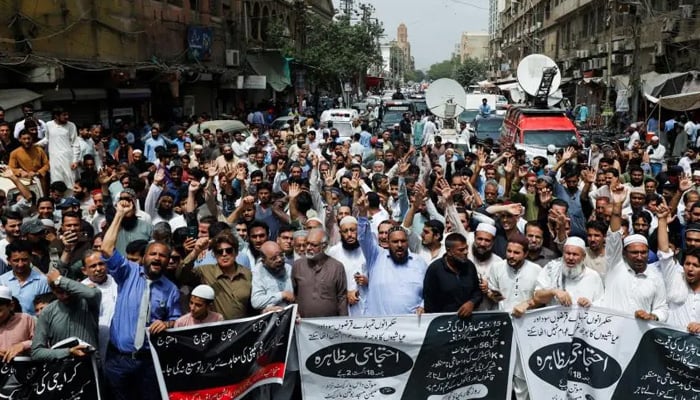As Pakistani citizens grapple with sky-rocketing inflation and protest against hikes in power bills, the Human Rights Watch (HRW) has urged the International Monetary Fund (IMF) to consider their right to electricity by funding universal social protection (USP) to phase out subsidies.
In its statement addressing the global lender, the human rights organisation said: “The price hike approved by the government has come as Pakistan faces one of the worst economic crises in its history, jeopardising millions of people’s rights to health, food, and an adequate standard of living.”
Furious Pakistanis, who are already reeling under runaway inflation, have been protesting across the country for the last eight days, setting electricity bills on fire while demanding that the government withdraw the hike in the tariffs and remove additional taxes.
The IMF, on Wednesday, asked Pakistan to share its plan in writing stating the steps it would take to ensure immediate relief to the citizens, sources
Pakistani authorities, a day earlier, shared their plan with the Washington-based lender to provide relief to citizens with the assurance that none of its targets, agreed upon by the previous government, would be compromised.
Caretaker Minister for Finance Dr Shamshad Akhtar said on Wednesday that a team comprising Pakistani authorities met the IMF officials. Though she was not part of the team in talks with the lender, she reiterated Pakistan’s commitment to follow the Fund’s programme.
The HRW, in its statement, mentioned the concession sought from IMF by the interim setup in Islamabad, adding that the Fund’s$3 billion deal with the cash-strapped nation “mandates the government remove energy and fuel subsidies and move to a market-based exchange rate, as well as increase taxes.”
“To ensure removing fossil fuel subsidies promotes rather than erodes rights, the IMF and Pakistani government should undertake a thorough assessment of the impact of these adjustments,” the statement read.
The organisation urged that prior to phasing out subsidies, a comprehensive reform plan should be put in place to mitigate price increases and facilitate the transition to sustainable energy.
“These reforms could include introducing a system of universal social protection, which would provide benefits to people with heightened risks of income insecurity, such as children, older people, and people with disabilities,” it added.
The human rights organisation, sharing its concern, said the country-wide protests should be “a warning light for both Pakistan’s government and the IMF.”
“Tackling climate change and advancing economic and social rights isn’t a zero-sum game. Both can be achieved if governments and organisations are willing to adopt a rights respecting approach,” its statement mentioned.



Comments are closed.